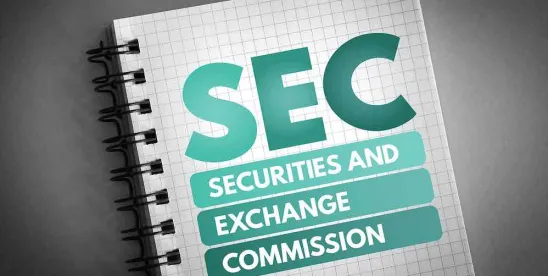In an ongoing effort to enforce environmental transparency in the corporate world, the SEC is looking to set an airtight policy on how companies must disclose their climate impact in annual reports. Following serious steps taken by the European Union to bring forward legislation of the sort, the SEC published a call for public commentary. John Coates at the SEC has made it clear that the agency is looking to move forward making a decision about ESG reporting requirements in the coming months.
While the major focus of the SEC’s initiative has been on the relationship between corporations and the environment, that is not the only area where transparency is lacking. The term “ESG” refers to environmental, social, and corporate governance factors that can be measured to evaluate the sustainability of an investment in a company. Currently, there are guidelines in place mandating the inclusion of this information in an annual report. Thus, the SEC is taking public comments, meeting with stakeholders, and hosting roundtable discussions about the best course of action. Additionally, they created an internal task force dedicated to the issue in March.
“Consistent with increasing investor focus and reliance on climate and ESG-related disclosure and investment, the Climate and ESG Task Force will develop initiatives to proactively identify ESG-related misconduct,” read an SEC press release from March 24, 2021. “The task force will also coordinate the effective use of Division resources, including through the use of sophisticated data analysis to mine and assess information across registrants, to identify potential violations.”
So, how do whistleblowers fit into all of this?
Under clear mandatory reporting guidelines, violations would be more apparent and reportable. This clarity would then enable those ready to blow the whistle to file actionable Tips to the SEC. Mobilizing whistleblowers to effectively assist SEC enforcement operations, saving the agency resources and reaping major benefits for investors and the American public – as the SEC whistleblower program has already done in so many other areas of corporate compliance.
Some commentators have politicized ESG disclosures as a basis for arguing that the for the SEC should stay away from the topic completely. However, it does not appear that the SEC is looking to change the nature of companies’ interactions with the environment. Instead, they agency is considering tightening up the disclosure process. If a company knows that they are impacting the environment negatively, the SEC is not going to stop them, but rather require that they make this known to shareholders who may or may not wish to continue their relationship with an organization running this way. If anything, this gives shareholders more power to decide where they want to see their money spent and opens the door to a whole new market of whistleblowers who can be sure that this is enforced.
The SEC is considering how to apply its already existing power to require certain information be disclosed, not engaging in a strong-armed, partisan move for environmental protection. It is corporate transparency that the agency would be calling for, not any specific environmental conduct. If companies want to market themselves as eco-friendly, yet do not include what makes them so in their annual reports, there is no way for outsiders to know what is really going on. If anything, this gives these companies branding themselves as sustainable the opportunity to prove it, and likely be rewarded for it by the green community. These types of misrepresentations are just the sort that environmental whistleblowers are eager to report, and it would benefit both investors and the public if the SEC were to adopt a mandatory reporting framework that would enable them to do so.
Across the pond, the European Union introduced a new framework for sustainability-related disclosures in 2019. Corresponding with their 2030 Agenda, a comprehensive plan to increase global sustainability developments by the year 2030, the EU reevaluated the same procedures the SEC is looking into today. Over anything, the EU aimed to set uniformity in their guidelines, increasing the integrity of disclosures while looking to positively influence climate change efforts over the years. Even if there were no ESG-related matters to report, the company had to explain why that was the case. This prevents false claims of nothing to disclose.
Essentially, the EU legislation was a baseline, allowing for any participating members to expand on their regulations and mandatory practices, but not cut down. As the SEC’s plans unfold, we will be able to see how the United States responds to such a change in corporate transparency and impact-inclusive reporting. NWC’s letter explains the legal intricacies of why mandatory reporting would be important, and how the law already supports whistleblowers who report environmental harm and is available here.




 />i
/>i
